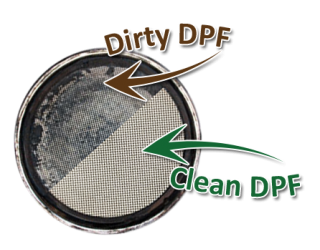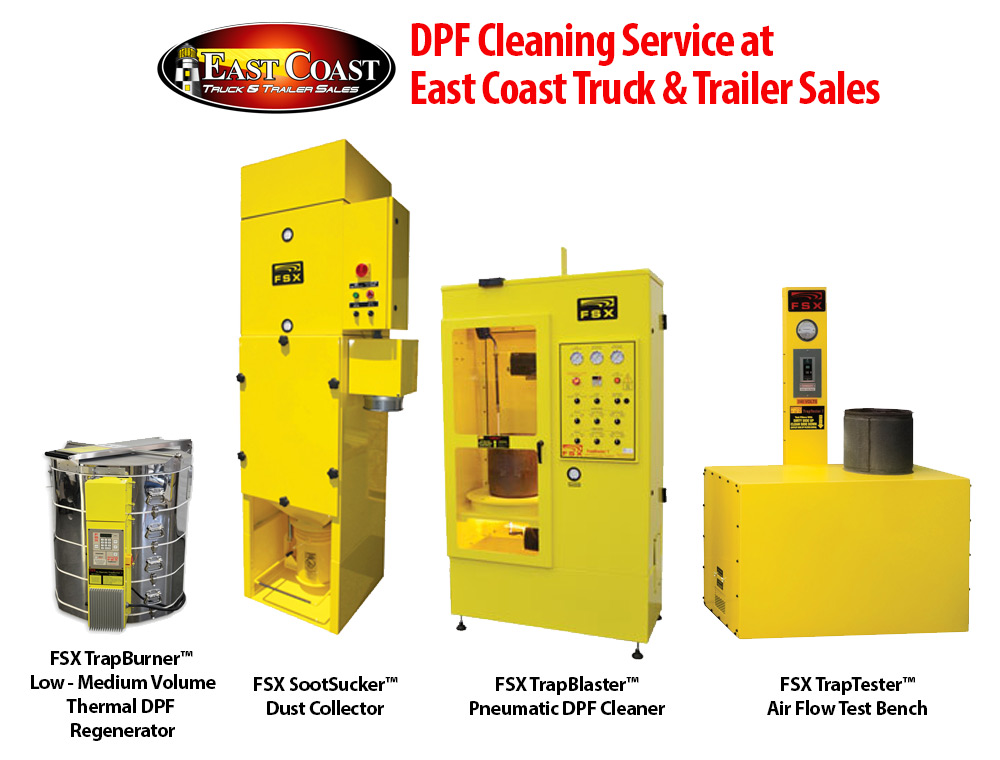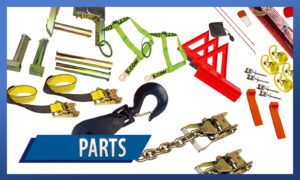Clean Diesel Particulate Filters Extend Engine Life, Save Fuel, and Add Resale Value
 Diesel Particulate Filters have been a key component of truck emissions systems since 2007. If your DPF’s are not maintained they can present problems along with engine issues. This may cause your engine to go into regeneration more times than it needs. As a result, your DPF can become clogged faster.
Diesel Particulate Filters have been a key component of truck emissions systems since 2007. If your DPF’s are not maintained they can present problems along with engine issues. This may cause your engine to go into regeneration more times than it needs. As a result, your DPF can become clogged faster.
If a DPF unit becomes clogged, it will need to be taken off the truck and cleaned. During regular DPF usage soot and ash are collected as a byproduct of regeneration heat and cannot be burned. You can’t burn something that has already been burned. With regular DPF maintenance you can help to reduce back pressure and improve fuel economy. The recommended interval for cleaning a DPF filter is every 1,000 engine hours. DPF maintenance usually takes about 60 to 90 minutes to remove the DPF and place it in the machine. Then the filter will be cleaned for around about a half hour and then it will be reinstalled. If baking is required, it could take up to eight hours. The advantage of this is that the original DPF stays with the truck, which may add to resale value if you can show complete servicing records. As a result many carriers are now having their DPFs cleaned by outside companies and dealerships.
Putting off tune-ups and maintenance on air cleaners and fuel filters as well as the testing of diesel exhaust fluid prevents your engine from operating efficiently and can cause excessive regeneration. Soot left behind in the filter can form a hardened disk of ash that increases engine back pressure and can damage Diesel Particulate Filters. If fleet owners conduct a periodic maintenance, use low-ash oil appropriate for their engines’ duty cycles and follow the engine manufacturers’ recommended practices at reasonable service intervals, then maintaining an SCR engine will not be a problem. This should include daily observation and maintenance records by the operator. It should also include periodic inspections as well as scheduled routine maintenance. Maintenance that lubricates, adjusts, repairs or replaces critical components that maximizes the components as well as efficiency.
According to the Environmental Protection Agency’s Diesel Particulate Filter Operation and Maintenance technical bulletin, “It is important to properly maintain vehicles and monitor fuel and lubrication oil consumption. A bad fuel injector or increase in oil consumption may be masked by a DPF. The DPF may be damaged by a poorly maintained engine. When a DPF is removed for cleaning, it may be useful to check the opacity of the vehicle to determine if a potential engine problem exists. Maintaining service records is advisable to track potential concerns or changes in operation.” Diesel emissions fluid is also an important factor in maintenance of Diesel Particulate Filters. According to experts DEF is supposed to consist of 67.5% de-ionized water and 32.5% automotive-grade urea. The purity of the mixture affects the performance and life of the SCR after treatment system, while the proper concentration of liquids is crucial to no reduction.
A dirty DPF can destroy equipment and lead to surprising amounts of downtime and delays. To avoid this; you will need to maintain product purity by only using DEF-approved piping and pump / dispensing systems. Onboard diagnostic tools can also help to alert drivers of potential engine issues that, if unresolved, might affect the DPF system. Drivers that pay attention to their vehicle diagnostics will be able to stay on top of most issues.
Unless you have the proper equipment and knowledge, DPF maintenance can end up being a very expensive lesson in what not to do yourself.
East Coast Truck and Trailer Sales offers diesel particulate filter cleaning services using our FSX DPF Cleaning system, the only one in the industry that is 100% OEM approved.
For More Information, Contact Us and Speak to One of Our Service Specialist!
1-800-849-2178 (Toll Free) | 757-465-2200 (Local)








